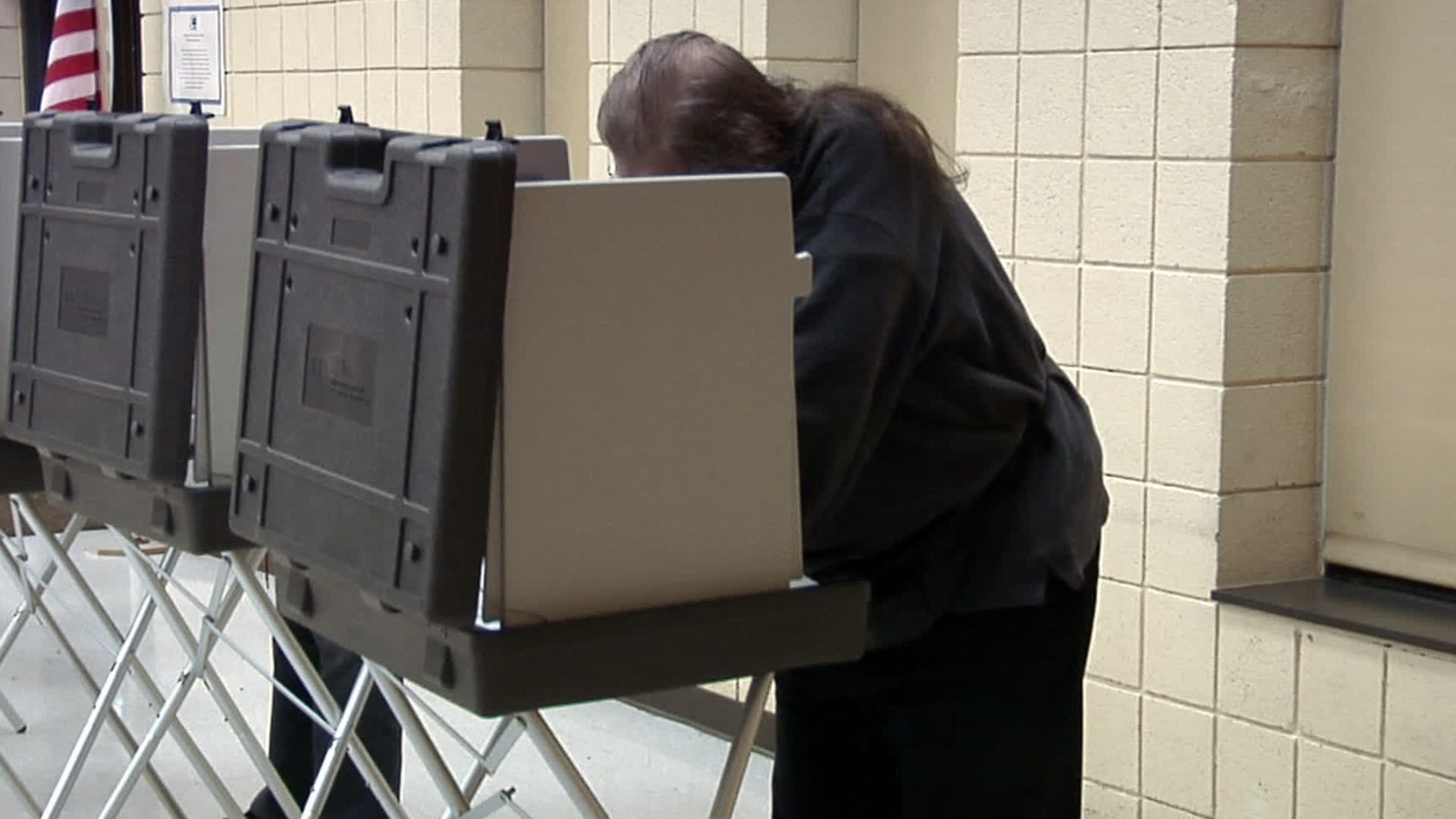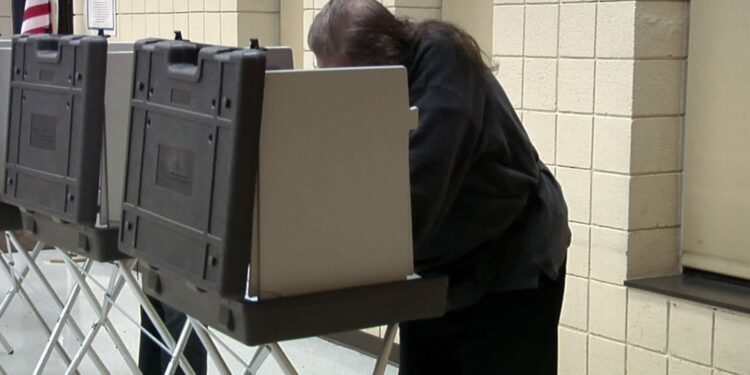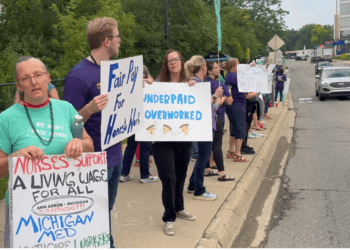
Essential guide to Michigan’s August primary election
Essential information for Michigan’s August Primary Election, including voting options, what seats are up for grabs, split ticket rules, and how to preview your ballot.
Michigan’s major party primaries for congressional and state legislative offices, which conclude Tuesday and will set the stage for the Nov. 5 general election, could be overshadowed this week by news of a more national bent.
Also by Tuesday, Vice President Kamala Harris − who is now the Democratic Party’s nominee for president − is expected to name her running mate, an event which will reverberate in Michigan even if it’s not Gov. Gretchen Whitmer, who largely took herself out of the race by last week, or Transportation Secretary Pete Buttigieg, a Traverse City resident, who gets the spot.
Harris and her vice presidential nominee will then begin a swing through battleground states in Philadelphia, before visiting Michigan on Wednesday and Thursday for events that have not yet been made public but will no doubt command lots of attention.
Then there’s also Monday’s big stock sell-off globally and whether it portends a temporary slow down or a potential recession, as some fear.
It’s been a recurring theme this election year, national news overtaking local political races, but here are three things to keep an eye on as the returns start to come in on Tuesday night, after polls close at 8 p.m.
How do the U.S. Senate races shake out?
The open U.S. Senate seat in Michigan, being vacated by Democratic U.S. Sen. Debbie Stabenow after four six-year terms, is the big statewide contest being voted on in November (other than the presidency, which Michigan will help decide with a handful of other swing states). No Republican has won a U.S. Senate race in Michigan in 30 years, but it’s considered a close call this year, depending on how circumstances play out.
U.S. Rep. Elissa Slotkin, D-Holly, has long been considered the frontrunner for her party’s nomination, having a considerable advantage in fundraising and political experience over her competition. But Detroit actor Hill Harper has been working hard to try to close the gap with Slotkin and was closing out the primary Monday night with a virtual get-out-the-vote rally with rappers Ludacris and Akon.
Whoever wins the Democratic nomination, he or she was set to face one of three Republicans: Former U.S. Rep. Mike Rogers of Brighton, former U.S. Rep. Justin Amash of Cascade Charter Township or west Michigan Dr. Sherry O’Donnell. Rogers is considered the likely nominee, having the support of institutional Republicans and former President (and current GOP nominee) Donald Trump. If it were to be other than a Slotkin-Rogers matchup, it would spell a major upset but how the votes shake out could tell us a lot about just how engaged voters are in this race and if the favorites are as strong as they seem.
What about those toss-up U.S. House races?
There are three, maybe four, races among Michigan’s 13 U.S. House seats that could be considered toss-ups, only two of which have incumbents − one Republican, one Democrat − running for reelection.
Tuesday’s voting, once we have the results, will give us a better idea of how the fall races will shake out.
In Michigan’s 10th Congressional District, centered on southern Macomb County and eastern Oakland County, U.S. Rep. John James, R-Shelby Township, is running unopposed for a nomination to a second two-year term. But after winning by a slim margin in 2022, he (and we) will have to wait to see if he again faces former Macomb County Judge Carl Marlinga or one of the other Democrats: Emily Busch of Oxford, Diane Young of Warren or state Board of Education member Tiffany Tilley of West Bloomfield.
In the 3rd Congressional District, U.S. Rep. Hillary Scholten, D-Grand Rapids, faces Salim Al-Shatel, a west Michigan businessman in her reelection primary. If she were to somehow lose, it would be a major upset. The Democratic winner will face either Paul Hudson, an East Grand Rapids lawyer, or Grand Haven financial planner Michael Markey, who are running for the GOP nomination in this marginally Democratic district.
Then there are the two open U.S. House seats.
In the 8th Congressional District, a tossup seat was put up for grabs by the surprise announcement of U.S. Rep. Dan Kildee, D-Flint Township, that he would not run for reelection in the district that includes Bay City, Flint and Saginaw. Running for the Republican nomination are Paul Junge, of Grand Blanc, who lost to Kildee two years ago but has Trump’s endorsement; Mary Draves, of Midland, a former Dow Chemical executive; and Anthony Hudson, a small businessman from Grand Blanc. Meanwhile, state Sen. Kristen McDonald Rivet of Bay City is running for the Democratic nod with Kildee’s endorsement. She faces Pamela Pugh, of Saginaw, who is the president of the state Board of Education, and former Flint Mayor Matt Collier. However this race turns out, expect lots of attention and outside money to be showered on it in the fall.
The other tossup race is in mid-Michigan’s 7th Congressional District and we already know the nomination winners there because both were unopposed Tuesday: former state Sen. Tom Barrett of Charlotte, in the Republican primary, and former state Sen. Curtis Hertel of Lansing, in the Democratic primary. They’ll face each other in November for the seat Slotkin (see U.S. Senate race above) is relinquishing.
What are the other factors at play?
Since Michigan adopted no-reason absentee voting in 2018, turnout has generally been up (substantially so in some elections) and the restrictions on early voting that were loosened ahead of this year’s balloting could further help that. But for much of this election, enthusiasm has appeared to be down among voters, especially those who weren’t overwhelmed by the fact that it appeared President Joe Biden and Trump would face each other in this year’s presidential election.
Since Biden stepped aside for Harris as the Democratic nominee late last month, however, Democrats have felt a surge in enthusiasm and the primary − not to mention Harris’ impending visit − could be indicators of just how much energy there is. They could also help determine if Republicans embrace absentee voting after Trump bashing it as inherently corrupt four years ago (even if he has changed his tune somewhat this year). For anyone who does plan to vote in person at the polls on Tuesday, there is expected to be rain across much of Michigan, which could potentially reduce turnout. We’ll certainly be keeping an eye out for any oddities, problems or trends.
Polls will open at 7 a.m. and close at 8 p.m. (though remember there are four counties in the western Upper Peninsula in the Central time zone). It’s anyone’s guess how long it will take to get winners called in the races: Because absentee votes can’t be counted early, it often takes hours − if not into the next morning or longer − to get the unofficial results completed.
Contact Todd Spangler: [email protected]. Follow him on Twitter @tsspangler.
Source link : http://www.bing.com/news/apiclick.aspx?ref=FexRss&aid=&tid=66b1f756a39645c49346b9597f16db71&url=https%3A%2F%2Fwww.freep.com%2Fstory%2Fnews%2Fpolitics%2Felections%2F2024%2F08%2F06%2Fmichigan-primary-election-2024-us-senate-house-races%2F74676278007%2F&c=2502256647485851934&mkt=en-us
Author :
Publish date : 2024-08-05 23:07:00
Copyright for syndicated content belongs to the linked Source.






